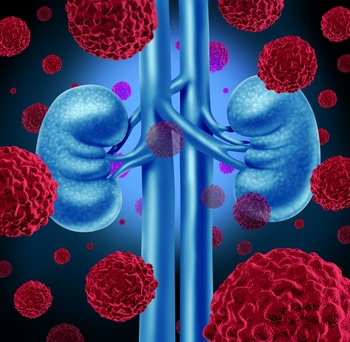Agent Orange exposure has been linked to a variety of cancers, but veterans who are suffering from, or family members of veterans who died as a result of, renal cancer are still struggling to get their claims approved because renal cancer has yet to be added to the presumptive list of diseases associated with Agent Orange. On May 15, 2011, researchers at the Overton Brooks VAMC in Shreveport released a study examining the severity of renal cancer in patients exposed to Agent Orange. That study indicates that there may be a connection between exposure to Agent Orange and subsequent development of renal cancer. As part of the study, researchers examined charts for 297 patients diagnosed with renal cancer between 1987 and 2009, finding that 4 percent (ranging in ages between 39 and 63 when they first presented with renal cancer) claimed exposure to Agent Orange. The report also indicates that the patients who had been exposed to Agent Orange have a more dangerous version of the cancer. The abstract for the report notes that “further data is being collected from other VA medical centers to further investigate if there is a link between renal cell cancer and Agent Orange exposure.” As of January 2015, additional research on renal cancer and Agent Orange has not been released by the VA. The 2012 IOM report on veterans and Agent Orange concluded that there was inadequate or insufficient evidence to determine whether there is an association between exposure and renal cancer, but it did not discuss the findings of the Shreveport study.
While renal cancer still has not been added to the presumptive list almost 4 years after the Shreveport study, there have been BVA decisions that have granted service connection for the disease and given weight to both the Shreveport study and independent medical evidence linking Agent Orange exposure to renal cancer. Therefore, any veterans who were exposed to Agent Orange and who have been suffering from renal cancer should not hesitate to file a claim for disability compensation in order to preserve the earliest possible effective date if renal cancer does get added to the presumptive list in the future.




